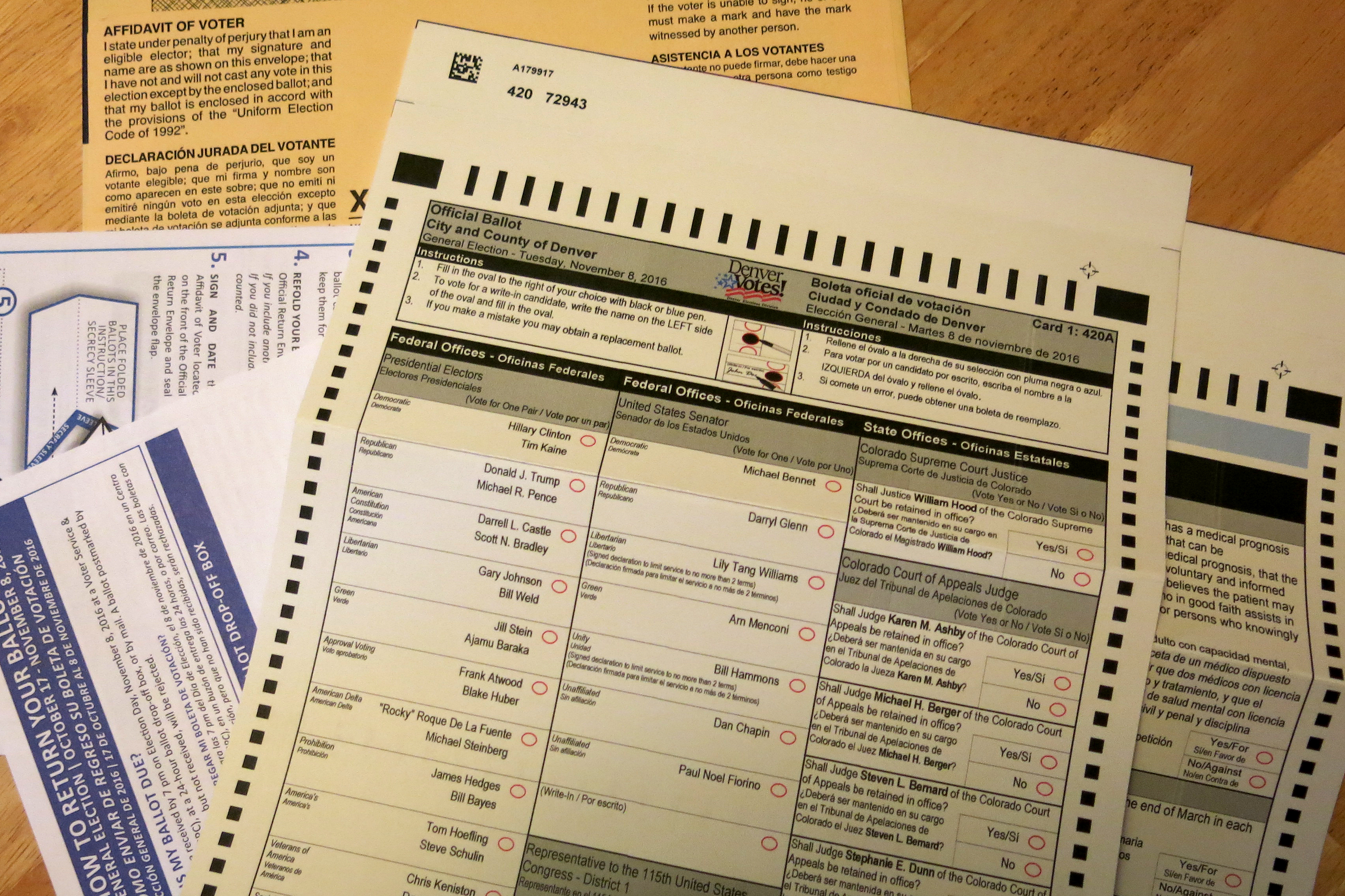
On Tuesday, voters will head to the polls and put an end to over two years of relentless campaign ads, stump speeches and political posturing.
But for first-time voters, the experience will be more of a novelty than a relief. About 270,000 young Coloradans will be old enough to vote in their first presidential election this year, according to the Colorado demographer's office.
Maggie Bryniarski, a 19-year-old junior at the University of Colorado Boulder, hasn't taken her new responsibility lightly. She voted for the first time last week. "I felt like I knew what I was doing," she said. "It was really nice to go in there and not feel like I was blindsided by anything."
Bryniarski works for New Era Colorado, a nonpartisan nonprofit that encourages young people to get involved in politics. The job has given her the chance to talk to other people coming to the election process for the first time. Some are wary about candidates at the top of the ticket. She said she will remember those moments when she convinced her peers to vote anyway.
That got us thinking about how other people in Colorado remember their first ballots, so we asked some of our recent Colorado Matters guests:
Colorado's governor learned early that every vote counts: "The first time I voted I was a freshman in college in Middletown, Connecticut. And it was the off-year election so there wasn't a presidential campaign and I voted for the mayor's campaign. It was one of those incredible campaigns where the winner won by a handful of votes. I can't remember if it was 10 votes or 12 votes or something like that. It was just one of those things where democracy was laid in bright contrast. Your vote matters. You better vote."
-- Gov. John Hickenlooper
Voting kicked off a career in politics: "My first time voting was in 1988 in favor of Bush the elder ... It was also an opportunity to vote a little down ballot in the 6th Congressional District for a guy named Dan Schafer. I had actually worked on that campaign at the recommendation of one of the other swimmers on the swim team. His mother was actually Dan Schafer's campaign manager and she said, 'Look, if you are interested in schools like (the U.S. military academies at) West Point or Annapolis, get in front of him by working with us and working for us. And it got me thinking about how politics is interwoven with all the government stuff that we do."
-- George Brauchler, district attorney for Colorado's 18th Judicial District
First vote evokes civic pride: "I was actually pretty excited about voting for the very first time. It was in 2004 and I voted for (George W.) Bush. I do remember going into the polls and being quite proud of myself for participating in the election process. That 'I Voted' sticker was my claim to fame, just to tell people that I did participate in the process. It was a pretty special moment at the time."
-- Edgar Antillon, co-owner of Guns for Everyone
A ballot at a time of political transition: "My first presidential vote was in 1968. So it was (Hubert) Humphrey and (Richard) Nixon. I was actually a cadet at the Air Force Academy at the time. I ended up voting for (Republican) Nixon because I'd grown up in a Republican family and I just followed what my parents said. And '72 I had seen what was going on in the world and I was actually in Vietnam at the time and I ended up voting for (Democrat) George McGovern."
-- Tom Huber, geographer at the University of Colorado Colorado Springs
A way to remember a less political time: "My first presidential election was in 1988, Bush-Dukakis. What I remember most about that time, being a freshman in college, was a lot of beer and a lot of partying associated with what I should be voting for. Probably should have been much more focused on my studies and the election than I was, but it was a great time in life for sure."
-- Reggie Bicha, director of the Colorado Department of Human Services
A means to make free long-distance phone calls: "I was a freshman in college in Washington D.C. and I was volunteering on both the (Republican) Gerald Ford campaign and the (Democratic) Jimmy Carter campaign. I didn't have very purist political thoughts at the time, but by volunteering on both campaigns I got to use long distance for free and could call back to Denver to my girlfriend. We were suppose to be making phone calls to try to recruit people to get out the vote and to otherwise get involved with the campaigns. I did a little of that too. I did make a choice of which one I was going to vote for, but I didn't see any reason to not take advantage to use the free long distance at both campaign headquarters."
-- Scott Levin, director at the Anti-Defamation League for the Rocky Mountain Region








